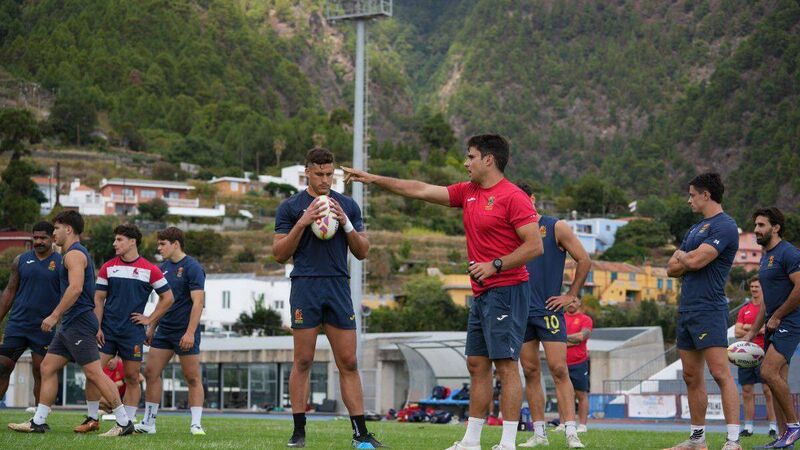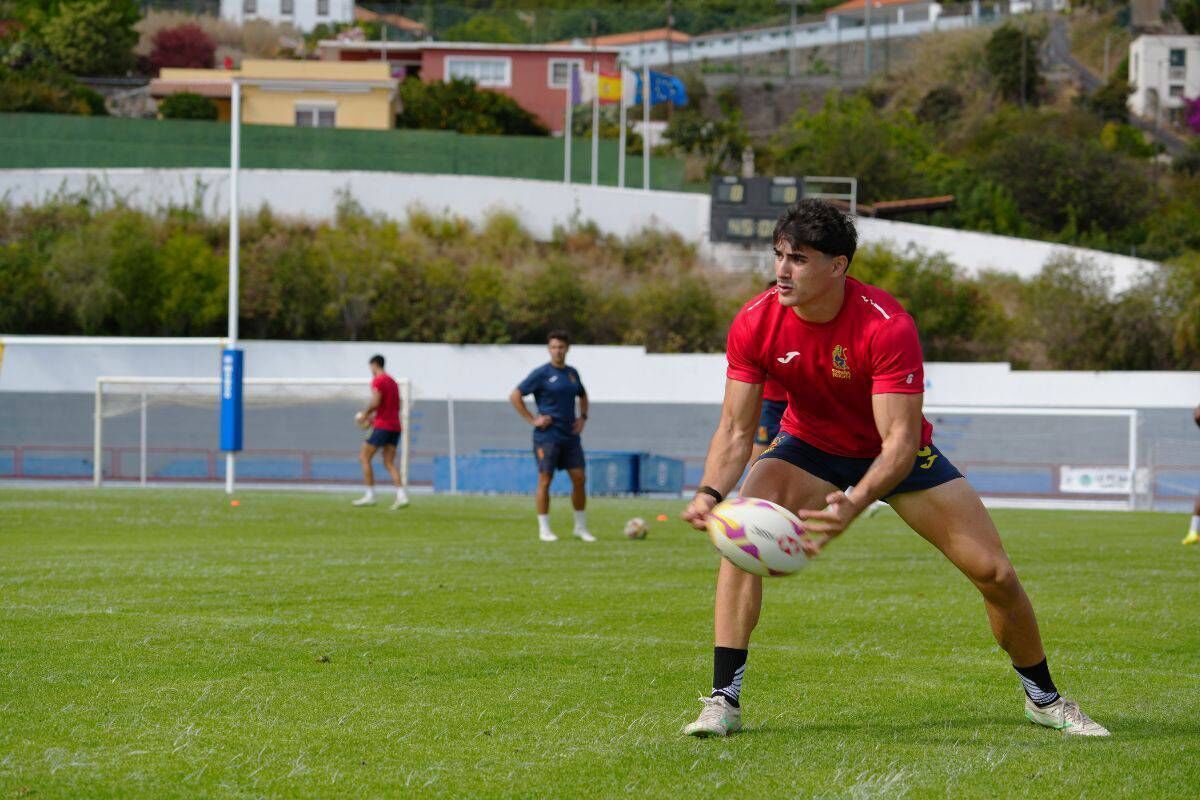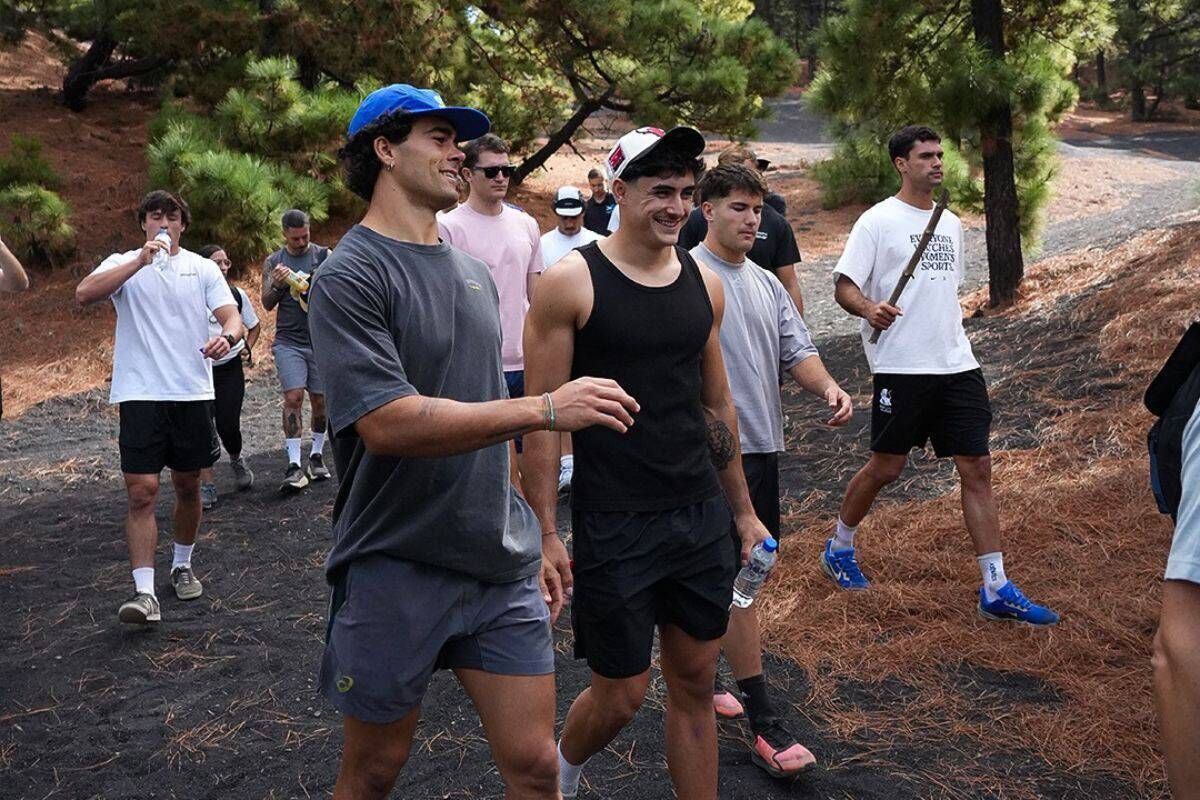When the weather is part of the plan – The model that inspires European rugby

The Canary Islands offered what no other place in Europe could guarantee at the end of the year, continuity.
While half of Europe trains in the rain and cold, the rugby sevens world runners-up have chosen the Canary Islands.
In this Atlantic archipelago, Spain is fine-tuning its training for the HSBC SVNS 2026 in a climate that redefines the way they train.
In November, while training in Cork is decided between rain showers and wind, 2,600 kilometres to the south, the conditions are very different.
Under a sun that never fails, the Spanish rugby sevens team, known as the Leones, are doing something that any coach in the northern hemisphere would love to achieve: training in perfect conditions.
In the Canary Islands, Spanish players run on natural grass and finish the day with sunlight still high over the horizon.
When Paco Hernández, Spain’s head coach, designed the ideal training camp, his list of requirements was clear: warm temperatures, stable weather, first-class facilities, and an environment where his players could live, breathe, and dream rugby without any distractions.
The answer was just a four-hour flight from Dublin. The Canary Islands offered what no other place in Europe could guarantee at the end of the year: continuity.
"The climate here is similar to that of Dubai, the first stop on the circuit. It’s a bit cooler, but the conditions are very similar,’ explains Hernández.
"Training in an environment like this helps us adapt better. What’s more, La Palma is quiet, ideal for focusing on training, resting, and eating well. Those are the keys to good performance," he adds.
It’s science applied to sport. Two weeks of controlled training on the island of La Palma.
Field sessions under the sun, strength training in the gym, and active recovery between black sand beaches and laurel forests. It’s all measured.
It’s all thought out.
Agrupar, Grouped object Spain’s leap, from Olympic frustration to world runners-up in Los Angeles, has been one of the greatest modern stories of the circuit. But staying at the top requires more than just talent and heart.
It requires method, environment, and meticulous preparation.
Fitness coach Manu García Sillero sums it up bluntly: "In many countries where we compete, we have to change our plans due to bad weather or limited facilities. Here, we can carry out 100% of our programme."
The data confirms it.
An average temperature of 22°C, more than ten hours of natural light per day, and atmospheric stability that is difficult to match on the continent.
"Players who train in an environment like this are happy, and you can see it in their performance, especially during heavy training weeks," adds García Sillero.
In a sport where margins are minimal, consistency is golden. This is something that any European players, especially Irish players, understand well.

The HSBC SVNS 2026 circuit kicks off on 29 November, and Spain arrives with a clear purpose to prove that Los Angeles was no accident.
"What we did last year was historic," Hernández acknowledges.
"Now, we want to make even more history. We dream of a gold medal, of winning at least one tournament, for the first time." It’s a considerable challenge.
"We are working hard on our offence, trying to change the way we play to be even more dynamic and adaptable on the field," explains the coach.
On the other side of the field await Argentina, France (Olympic champions), Great Britain, South Africa, Australia, Fiji, and New Zealand, powerhouses that show no mercy.
But Spain is no longer looking up from below. "Before, we saw ourselves as a rival that could win a match," admits Juan Ramos, captain and one of the key players on the team.
"Now we see ourselves as the team to beat, a real contender to win the league."
Beyond the climate, athletes value something in the Canary Islands that cannot be measured in degrees: the quality of their recovery.
‘The competition is extremely tough, both physically and mentally,’ comments Jeremy Trevithick, a Spanish player with a British father.
‘Training in an environment where everything flows, where your body and mind can rest, is a huge advantage.
Everything is close by here, everything works, and Members of Spain’s rugby sevens team explore La Palma’s natural landscapes in the Canary Islands during a break from training.
The balance between effort and rest is part of the plan.
At the La Palma Training Camp, high-intensity sessions coexist with trails through humid forests, black sand beaches, and a pace that promotes concentration.

Science supports this choice. Natural light regulates circadian rhythms, improves sleep, and stimulates vitamin D production.
Atmospheric stability reduces physiological stress, and the natural environment provides a sense of mental well-being that is impossible to replicate in a closed sports centre.
That is why the archipelago has become a European benchmark for high-performance training.
World Tour cyclists, Olympic boat racers, triathletes, and swimmers know this well.
Now, rugby sevens is joining them too.
In a few days, the Leones sevens will fly to Dubai to take on Great Britain, Australia, and New Zealand.
They will arrive with the confidence of those who have worked tirelessly, under steady skies, and with their minds cleared in an Atlantic enclave where performance is cultivated with patience and method.
In European rugby, which is seeking ways to perform all year round, Spain’s commitment to the Canary Islands suggests that the environment is also part of the plan.
Discover more here.






